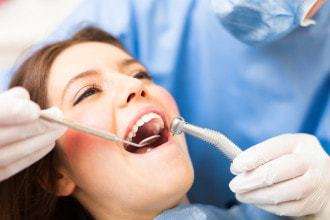Cavities are never any fun, but a new method based on an old practice is gaining attention for its less obtrusive nature and overall cost-effectiveness. According to the West Palm Beach CBS affiliate WPEC, Dr. Jason Hirsch is a pediatric dentist who works in the South Florida area and has started using this new method to replace traditional drilling of cavities.
The new technique is based on the practice of old-school techniques, which used natural, pain-free methods to treat cavities long before drilling was around. It has come to light recently in large part because of a seven-year study that was recently conducted in Australia, which suggested non-drilling methods are actually more efficient.
“We’re treating it like a chronic disease rather than as an acute disease which is the old mentality of see a cavity, drill a cavity,” said Dr. Hirsch.
Hirsch’s method involves using Silver Diamine Fluoride to treat tooth decay, as opposed to drilling the cavity. He started using this method for the first time in April of 2015 and has used it on a total of 50 patients to date. None of the cases required surgery or sedation of any kind and all of them are cavity-free today.
Being a pediatric dentist, Hirsch works primarily with kids, which is good considering about 78% of people will develop a cavity by the age of 17. Two of his patients who fall into that category are the six-year-old and four-year-old daughters of Diana Greene.
“It works for us,” Greene said. “Knowing that no shots had to be done and no anesthesia had to be done, and they’re not traumatized about having to come to the dentist.”
The painless part of the procedure might sound like the best aspect, but that status could be argued to be reserved for the cost. As opposed to the exorbitant costs associated with drilling and anesthesia (between $3,000 and $5,000 without insurance) this new method costs about $100. This low cost is great for patients, but probably the primary reason dentists have been resistant to adopt the practice.
“This is very disruptive in that it has the ability to be more effective and lower the cost for everybody,” Hirsch said.

